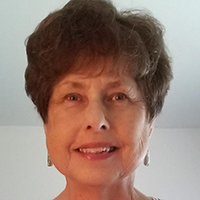What You’ll Study in a Nurse Educator Program
You’ll need a graduate degree to teach nursing, and you’ll have three choices, depending on what you want to teach.
To take on a leadership role in nursing as an educator, you’ll need a Master of Science in Nursing (MSN), a Doctor of Nursing Practice (DNP), or a Doctor of Philosophy (PhD).
The degree you earn can determine the coursework and clinical programs you’ll teach, the organizations in which you’ll work, and the positions you’ll hold.
In This Article
No matter where you are in your career or education right now—from associate nursing degree student to charge nurse in a teaching hospital with years of experience—there is a pathway for you to become a nurse educator.
“Aspiring nurse educators should definitely contact program advisors about their options,” says Donna R. Swope, MS, RN, an adjunct professor of nursing at Stevenson University. “Program advisors know the details of their own programs completely, and they are also knowledgeable about Board of Nursing curriculum requirements, regional program differences, and details like the hire rate post-graduation.”
Is Teaching Your Calling?
Swope cautions nurses against moving into teaching unless they really love interacting with students.
“You may know everything about your area of expertise, but students will dread coming to your class if you don’t love teaching it,” she says. “When you love teaching, you transfer the desire to learn to your students.”
Choosing a Graduate Program
In general, to enter a nursing graduate program, you’ll need a bachelor’s degree. For most aspiring nurse educators, this degree will be a Bachelor of Science in Nursing (BSN).
Some graduate programs also accept students with bachelor’s degrees in other fields and provide prep courses to fill in the required nursing knowledge. Program advisors can help you sort out these options.
Master of Science in Nursing
An MSN provides advanced education in nursing and is required or strongly preferred for most nurse educator positions. For careers in education, administration, and informatics, some MSN students focus on coursework that doesn’t involve direct patient care. Others prepare for clinical teaching roles as advanced practice registered nurses (APRNs).
With an MSN, you’ll generally teach introductory classes, required nursing courses, and clinical courses.
Graduates in both areas may become nurse educators. You’ll take courses in education as part of your MSN studies or earn a certificate in education after you complete your master’s.
With an MSN and instruction in education, you can teach undergraduate students at junior colleges, trade schools, hospitals, and some colleges and universities. You’ll generally teach introductory classes, required nursing courses, and clinical courses.
Doctoral Degrees
A doctorate is the highest degree in nursing. Most universities strongly prefer to hire nurse educator faculty with doctorates. Having a doctorate is a minimum requirement for certain roles, such as:
Dean of a nursing school
Research scientist
Professor who teaches graduate courses
Professor who serves as an advisor to PhD candidates
Swope recommends pursuing a doctoral degree. It takes some time but having a DNP or PhD can give you the most career options and prepare you to serve in senior executive leadership and policy positions.
Nurses with a PhD are prepared to conduct research that breaks ground in nursing practice and healthcare delivery in general.
Nurses with a DNP can become clinical leaders who use evidence-based research and trends to advance nursing care and influence policy at the highest levels of an organization.
Some nurse educators pursue both a PhD and DNP, especially those aiming for the most senior positions in academia, research, government, and policy.
Nurse educators with doctoral degrees teach primarily at universities and lead graduate-level seminars and clinical courses. They also serve as advisors for nurses who are PhD candidates and guide them in defining their course of study.
Master’s Programs
MSN nursing programs generally take 18 months to two years if you attend full time. Many graduate students also work, so you’ll have company if you take that route. In fact, to be accepted into most MSN programs, you’ll need one or two years of on-the-job nursing experience.
As part of your master’s education, you’ll take advanced nursing courses and also select a specialty to study. Specialties in non-direct patient care might include education, administration, health policy, nursing executive, or health technology. Specialties for students who want to continue to care for patients may include midwifery, anesthesiology, or gerontology.
Curriculum and Clinical Requirements
You’ll want to choose a master’s program that has an emphasis on education. These programs will include a mix of general nursing classes, clinical training, and rotations, in line with your chosen course of study.
Programs with an emphasis on education and teaching could include:
Accelerated Programs
There are a number of RN-to-MSN accelerated programs available for nurses with associate and bachelor’s degrees. These programs usually take into consideration your on-the-job learning and may help you move more quickly into an MSN degree program.
Prerequisites
Graduate school prerequisites for an MSN may include some or all of the following:
Doctoral Programs
Doctoral programs generally take two to six years if you attend full time. The time it will take depends on whether you already have an MSN and whether you’re doing research for a PhD. Some doctoral programs don’t accept part-time students.
Doctoral programs prepare nurses to be experts in their profession and to assume leadership roles in a variety of academic and clinical settings.
Doctoral nursing students who aspire to be nurse educators and researchers will normally earn a PhD. Those who want to be nurse educators and plan to focus on clinical practice will earn a DNP. According to the American Association of Colleges of Nursing, doctoral programs prepare nurses to be experts in their profession and to assume leadership roles in a variety of academic and clinical settings.
Some aspiring nurse educators pursue both the PhD and DNP, blending nursing science, research, and clinical practice expertise.
Curriculum and Clinical Requirements
A doctoral program will build on your previous education and delve deeper into the theoretical foundation of nursing, healthcare delivery, leadership and public policy. You’ll learn how to conduct research and earn the credentials to work as a professor or healthcare executive.
Here’s what to expect as you train to become a researcher and scholar able to tackle complex health issues:
Doctoral Graduation Requirements
The DNP and the PhD have different graduation requirements, but both tell others that you’re an expert in your field:
PhD
You’ll defend a dissertation or original research project.
DNP
You’ll focus on building advanced clinical expertise and submit a capstone project specific to your area of specialty.
Accelerated Programs
Nursing BSN-to-PhD programs are available in some nursing schools. This pathway is for highly motivated students who know as undergraduates that their ultimate goal is a doctoral degree.
Prerequisites
Doctoral program prerequisites vary widely, but generally you’ll need some or all of the following:
Online Options for Graduate Programs
There are a number of online graduate programs in nursing. According to Beverly Malone, PhD, RN, FAAN, CEO of the National League for Nursing (NLN), online programs have freed many nurses to pursue their dreams by giving them the flexibility to work, raise their families, and pursue their educational goals.
In nursing, even the most prestigious programs offer a number of online courses, especially for basic nursing theory and essential classes like statistics. Most programs are hybrid in nature, meaning that classes are a mix of classroom and online instruction.
In nursing, even the most prestigious programs offer a number of online courses, especially for basic nursing theory and essential classes like statistics.
Clinical training and clinical rounds must be hands-on, and some doctoral programs require you to be in residence full time, even if you’re taking online courses. This allows you to participate in research residencies and teaching practicums.
Online MSN programs often are more flexible. Clinical training must be hands-on, but often you can complete it on the job or by working with a preceptor. This is a great option for parents and full-time workers managing multiple responsibilities.
The Eight Core Competencies
The National League for Nursing lists eight competencies that a nurse educator should have upon graduation. You should be able to:
Accreditation
As you consider graduate programs, make sure both the school and the program you choose are accredited, which means they meet established education standards set by independent accrediting organizations.
Attending an accredited school and program is important for three reasons:
You should look for accreditation from the following organizations when researching graduate programs:
Costs and Financial Aid
The potential cost of your education can vary widely, depending on the school, its location, and the degree you’re pursuing.
Schools publish detailed cost estimates on their websites, and a program advisor can walk you through the numbers and give you information about financial aid.
Many students are eligible for federal or private grants, scholarships, or loans to offset education costs. You can file a Free Application for Federal Student Aid (FAFSA) to see if you qualify for financial help.
Most schools, and many departments within a school, also have student scholarships and grants available. Schools will generally list these on their website.
Certification
Nurse educators with an active RN license and at least an MSN can take one of the two NLN certification exams. While certification isn’t required to work as a nurse educator, most employers prefer you have it, and many require it.
The certification tests are based on the NLN’s eight designated core competencies.
Certified Nurse Educator (CNE) is awarded to academic nurse educators who teach in the classroom.
Certified Academic Clinical Nurse Educator (CNEcl) is awarded to academic clinical nurse educators who teach clinical aspects of nursing.
A Mark of Distinction
Career Outlook
The career outlook for nurse educators is exceptional. Through 2032, the U.S. Bureau of Labor Statistics (BLS) forecasts that jobs for nurse educators will grow by 18.2%. That compares to a 5% forecast for occupations as a whole.
A shortage of nurses across all specialties and the anticipated retirement of many current nursing school faculty is driving the high job forecast.
A shortage of nurses across all specialties and the anticipated retirement of many current nursing school faculty is driving the high job forecast.
The U.S. is expected to face a shortage of nearly 1 million nurses by 2024. Plus, 70% of full-time nurse educators are over the age of 45, and many in this group are nearing retirement.
Salary Potential
According to the BLS, the median annual salary for nurse educators is $80,780, with the top 10% of earners making over $130,320. Wages can vary widely, depending on your position, where you work, and where you are located.
For example, the average salary for nurse educators in Washington, D.C., is $100,030, while in West Virginia it’s $62,730.
Advancing Your Career
Swope has some advice for advancing your career as a nurse educator.
“If you’d like to teach nursing, get a doctoral degree,” she says. “Most large universities expect their faculty to have one. Also, get some clinical experience before you teach. If you haven’t worked in a real-world clinical setting, employers may not see you as a desirable teaching candidate.”
Swope also suggests:
The Luxury of Options
Ultimately, nurse educators have options: They can teach in academia, do research, work on international healthcare policy, become the dean of a nursing school, or work in healthcare as consultants or executives.
Some will reach the highest levels of the profession like Malone, who has served as deputy assistant secretary at the U.S. Department of Health, in addition to leading the NLN.


With professional insight from:
Adjunct Professor of Nursing at Stevenson University


